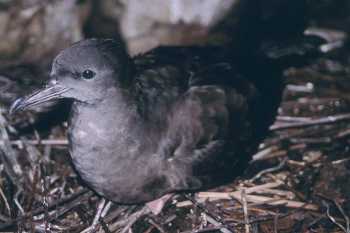Taketo Komura (Graduate School of Agriculture, Kyoto University, Sakyo-ku, Kyoto, Japan) and colleague have published open access in the online journal PLoS One on diet of the Wedge-tailed Shearwaters Ardenna pacifica from Minamijima Island in the Ogasawaras revealed by DNA metabarcoding.
The paper’s abstract follows:
“The foraging ecology of pelagic seabirds is difficult to characterize because of their large foraging areas. In the face of this difficulty, DNA metabarcoding may be a useful approach to analyze diet compositions and foraging behaviors. Using this approach, we investigated the diet composition and its seasonal variation of a common seabird species on the Ogasawara Islands, Japan: the wedge-tailed shearwater Ardenna pacifica. We collected fecal samples during the prebreeding (N = 73) and rearing (N = 96) periods. The diet composition of wedge-tailed shearwater was analyzed by Ion Torrent sequencing using two universal polymerase chain reaction primers for the 12S and 16S mitochondrial DNA regions that targeted vertebrates and mollusks, respectively. The results of a BLAST search of obtained sequences detected 31 and 1 vertebrate and mollusk taxa, respectively. The results of the diet composition analysis showed that wedge-tailed shearwaters frequently consumed deep-sea fishes throughout the sampling season, indicating the importance of these fishes as a stable food resource. However, there was a marked seasonal shift in diet, which may reflect seasonal changes in food resource availability and wedge-tailed shearwater foraging behavior. The collected data regarding the shearwater diet may be useful for in situ conservation efforts. Future research that combines DNA metabarcoding with other tools, such as data logging, may provide further insight into the foraging ecology of pelagic seabirds.”

Wedge-tailed Shearwater, photograph by Alan Burger
Reference:
Komura , T., Ando, H., Horikoshi, K., Suzuki, H. &Isagi, Y. 2018. DNA barcoding reveals seasonal shifts in diet and consumption of deep-sea fishes in wedge-tailed shearwaters. PLoS One doi.org/10.1371/journal.pone.0195385.
John Cooper, ACAP Information Officer, 03 May 2018

 English
English  Français
Français  Español
Español